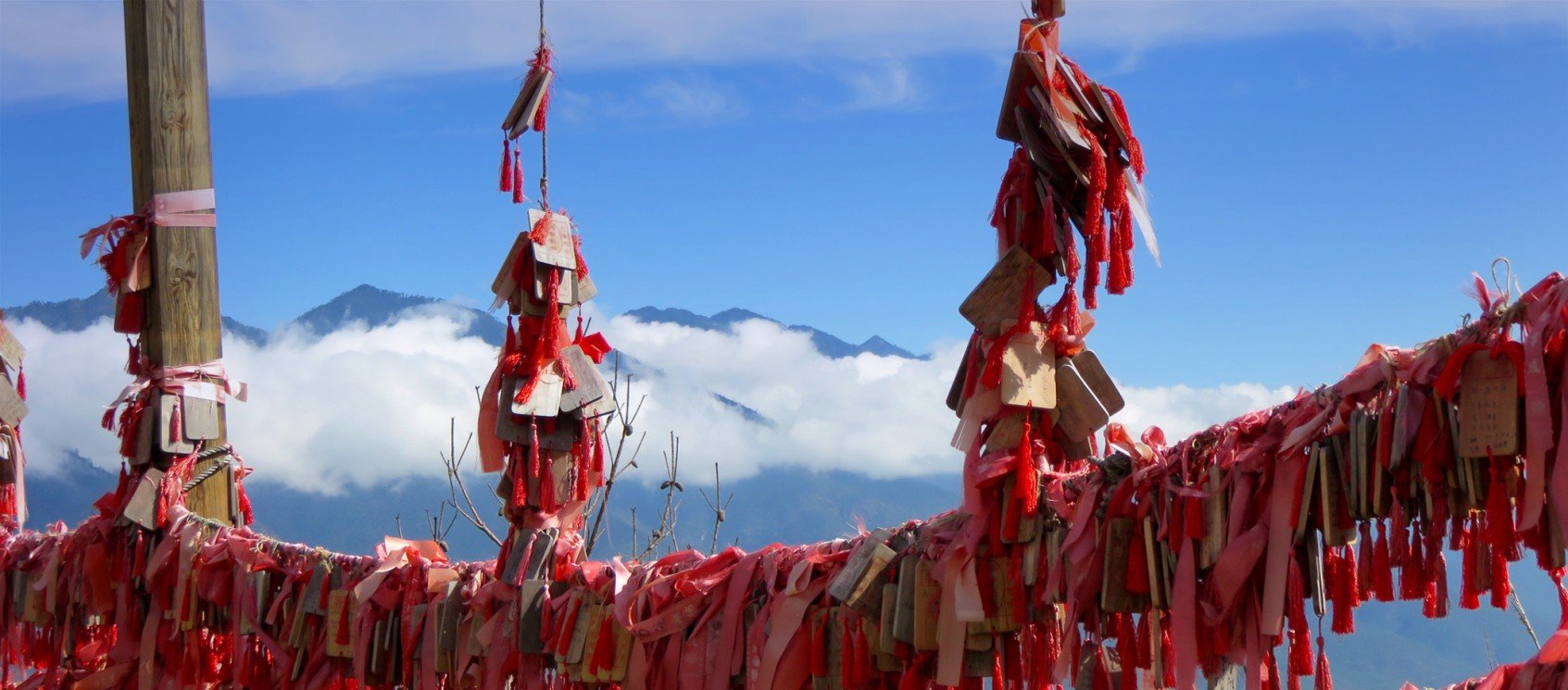College Study Abroad China, Sample Itinerary
This is a sample itinerary. No two Dragons programs are the same. Every itinerary considers the unique strengths of the instructor team and interests of the student group.
| Week 1 | After arriving in Kunming, we travel to our orientation site in the town of Tuanjie. We stay at a small guesthouse, where the bulk of our orientation activities will take place. We engage in workshops on group dynamics and intercultural communication, set goals and expectations for the semester and introduce the curriculum for our for-credit courses. We also begin to formulate plans for our Independent Study Projects (ISPs) and start our language study with some basic survival lessons. |
|---|---|
| Week 2 | Upon completing orientation, we board a train for the historic town of Lijiang, a UNESCO World Heritage site in an ethnically Naxi area at the foot of Yunnan’s Jade Dragon Snow Mountains. From Lijiang, we travel to an area named for the lake at its center, Lashihai. In a Naxi village in Lashihai, we meet with farming families now very familiar to Dragons after years of friendship. We spend our days learning some basics of life in China, getting to know the villagers, hiking in the surrounding hills and visiting nearby monasteries and historic sites. During our time here we also spend a few days trekking at nearby Laojun Mountain. By the end of our travels in this region, we have observed and participated in a range of cultures, seen some breathtaking scenery, and heard local perspectives on tradition and change through fireside conversations. Throughout this week we also continue our introduction to language study. |
| Weeks 3-7 | After our time in Lashihai, we travel back to Yunnan’s capital city, Kunming, the “City of Eternal Spring.” In Kunming we meet our extended homestay families who embody both traditional values as well as lifestyles and perspectives shaped by modern living and China’s blistering pace of change. |
| Our weeks in this community are defined by intensive language study and diving into our intercultural communication course. As with all academic courses, these are taught in intensive blocks and the language and intercultural communication course take place over the course of five weeks. As we dig into the academics of the program, we also make time to settle into a routine with our families during our five-week homestay. | |
| We also have the opportunity to organize group explorations outside of Kunming on some evenings and weekends, including a possible visit to Shaxi, an ethnically Bai village and an important market town on the historic Tea Horse Road. Other possible travels that the group embark on include visiting Xishuangbanna, a multi-ethnic area of dense tropical forest bordering Laos and Myanmar. These experiences outside of our homestay community are also directly tied into the academic courses and provide additional opportunities to practice language and explore intercultural communication theories and best-practices. | |
| Weeks 8-11 | Bidding farewell to our homestay families, we head north through metropolises that will feel much more daunting than laid-back Kunming, learning along the way about social issues such as education, public health, environment, civil society, economic development, gender, ethnic minorities, human rights, and popular culture. We also stay connected to rural areas, both Han and ethnic minority-dominated, and continue our exploration of local lifestyles, traditions, and philosophies. One possible area we may visit is the Qinghai Province, most of which was part of the Tibetan Kingdom of Amdo for much of history. This is one of the less-traveled areas of western China where we spend time living with Tibetan homestay families, learning how many communities still build their livelihoods around yaks and other herd animals, and exploring the richness and complexity of Tibetan Buddhism at one of the region's historic monasteries. |
| Throughout these several weeks– whether while travelling or in our second homestay - we focus on our Regional Seminar coursework and also begin instruction and planning for our ISPs. The Regional Seminar typically takes place over three weeks and the ISP course has three weeks of instruction and three weeks of intensive experiential work. | |
| Weeks 12-14 | This is the phase of the program where all of the skills we have been developing are put to the test. During this two-week independent expedition period to an individually selected location in China, we work with our instructors to propose a plan to go deeper with our ISP topic. The goals of this phase are two-fold – to give students adequate time to fully immerse themselves in their ISP topic and to challenge themselves to do so in a truly independent manner. After the two-week period of independent study, we come back together to write our ISP paper and present our experiences to our peers. |
| Week 15 | Closing out our time together, we head to Beijing. In our final few days together, we leave the city of Beijing behind and retreat into the shade cast by the Great Wall and the hills over which it crawls. In a cozy family-run guesthouse, we reflect on our journey, celebrate our time together, and prepare for the transition back home. |
| We then return to Beijing and have one final day to tie up loose ends and close out the semester. As we prepare to and then finally return home, each of us will discover the ways that this semester has shaped us and reshaped our views of China and the world. |

